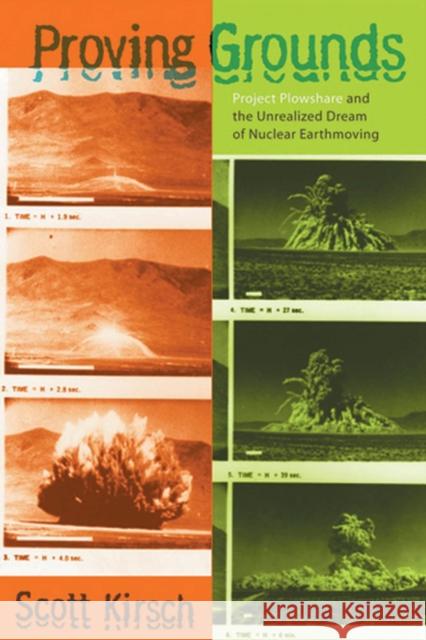Proving Grounds: Project Plowshare and the Unrealized Dream of Nuclear Earthmoving » książka
Proving Grounds: Project Plowshare and the Unrealized Dream of Nuclear Earthmoving
ISBN-13: 9780813536668 / Angielski / Twarda / 2005 / 272 str.
Although unthinkable by today's standards, the U.S. Atomic Energy Commission spent hundreds of millions of dollars between 1957 and 1974 studying the feasibility of using nuclear explosions for so-called "peaceful" purposes under a program called Project Plowshare. Nuclear earthmoving, promoted by the famed physicist, defense strategist, and anticommunist Edward Teller, was the most notorious of Plowshare's experimental programs. Teller and his colleagues proposed using nuclear explosions to build canals, dig harbors, and create dams and quarries. Such "constructive" uses of atomic weaponry, they believed, would help defuse Americans' fears about radioactive fallout and nuclear testing and would encourage continued support for nuclear research programs.
In Proving Grounds, Scott Kirsch traces the rise and fall of this astonishing cold war initiative. He examines the work that went into making "geographical engineering" or "earthmoving" an imminent possibility as well as the public controversy, scientific uncertainty, and political opposition that kept it--with the exception of several massive craters in the Nevada desert--out of the landscape. On one level, Kirsch demonstrates how the history of Project Plowshare was shaped by the specific issues and sentiments that influenced American nuclear and environmental policy during the 1950s and 1960s. But Kirsch also argues that the lessons learned from this case continue to hold relevance today. By exploring key issues of science and risk, Proving Grounds warns that knowledge production and environmental politics are still very much intimately, and dangerously, related.










